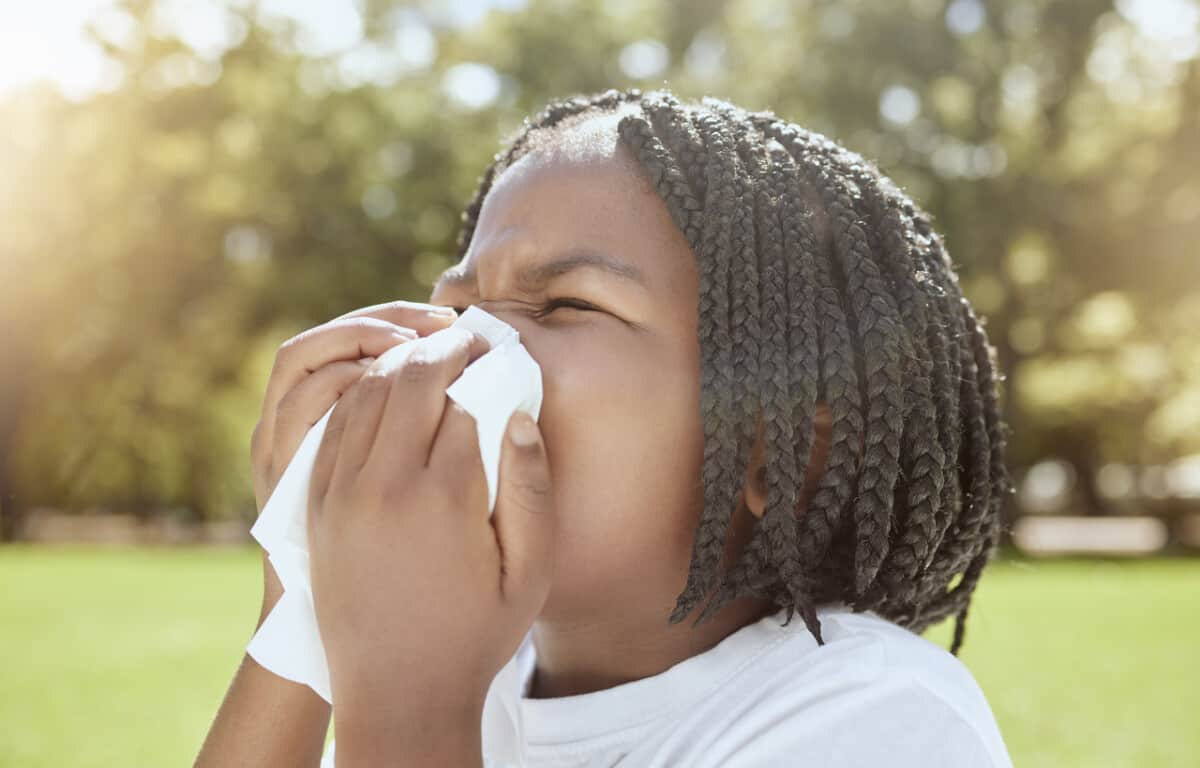Allergies can be a simple sniffle that starts when things start to bloom and quickly resolves as pollen dissipates. It can also be itching, watery eyes, difficulty breathing and uncontrollable sneezing. Alzein Pediatrics is here to help you better understand allergies and allergy symptoms and provide treatment solutions.
For nearly 1 out of every 5 children in the U.S., spring’s warmth comes with seasonal allergies and their associated symptoms. Once called hayfever, seasonal allergies are the result of an immune system response to a range of environmental factors. The immune system reacts to pollen, dust or perfume as if it’s a real danger to health, creating antibodies to “fight” that invader, which result in allergy symptoms such as sneezing, coughing or runny eyes.
Since seasonal allergies tend to coincide with the last of the “cold and flu” season, it may be best to determine if your child really has seasonal allergies and what they are allergic to. It sounds icky, but the best way to determine this is to look at the mucus coming from your child’s nose. If the mucus is thick and/or opaque, your child probably has a cold or virus. If the mucus is runny and clear, it’s most likely allergies.
The American College of Allergy, Asthma, and Immunology reports that allergy symptoms such as runny nose, itchy eyes, sneezing, post-nasal drip, and nasal congestion can cause significant declines in quality of life and good health. Hives can cause flaking and peeling, which may lead to infections. Congestion can make breathing difficult, especially at night, leading to a decrease in sleep or poor sleep quality. Chronic congestion and the inflammation it causes can sometimes result in bacterial ear infections. Rubbing and touching itching eyes can lead to conjunctivitis or pink eye.
Seasonal allergies are caused by various pollens from trees, grass and other plants. Environmental allergens such as animal hair, dust mites, mold, smoke, car exhaust, and even perfume can also cause uncomfortable symptoms.
To ease allergy symptoms, help your child avoid the allergens that trigger their immune system. Tracking local pollen counts, keeping windows closed, and using a HEPA filter system will keep pollen exposure to a minimum. For more sensitive allergy sufferers, shower and change clothes when coming in from outdoors and limit time outdoors on high pollen count days. Remove carpets if possible, or vacuum and steam clean frequently. Change bedsheets often and wash towels after each use. Use fragrance free soaps and detergents and definitely avoid fabric softener.
Some allergens can’t be fully avoided and that’s where Alzein Pediatrics can help. Consult with us before using over-the-counter nasal sprays and antihistamines; we’ll want to ensure proper dosage and help you monitor and prevent any side effects.
Alzein Pediatrics is the only Chicagoland pediatrician offering SLIT immunotherapy, which can provide your child with a lifetime of immunity from seasonal and environmental allergies – with no injections. If over-the-counter medications are not helping to control your child’s allergy symptoms, make an appointment with your Alzein Pediatrics provider to discuss SLIT immunotherapy. Your child’s healthcare provider can perform skin allergy testing at an in-office appointment.
If your child experiences a runny nose or cough for more than a week, send us a message through your patient portal to make an appointment to discuss the possibility of an allergic reaction. Alzein Pediatrics wants your child to be comfortable all year round.


